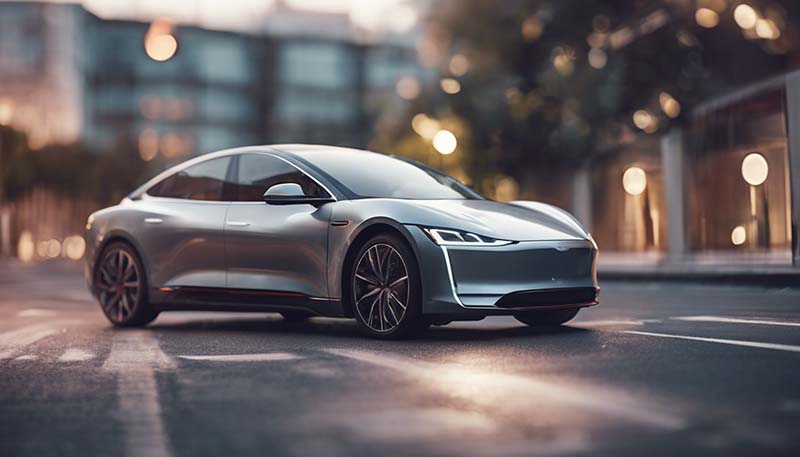Electric Intelligence: AI Features in New Electric Cars
As the automotive industry continues to evolve, the integration of artificial intelligence (AI) is becoming a cornerstone of innovation. Electric vehicles (EVs) are at the forefront of this technological revolution, with AI-powered features that are transforming the driving experience. This article explores the various AI capabilities that are becoming standard in new electric cars, enhancing safety, efficiency, and convenience for drivers and passengers alike.
AI-Driven Battery Management Systems
One of the critical components of electric vehicles is the battery. AI-driven battery management systems (BMS) use advanced algorithms to optimize battery performance, extend life, and ensure safety. These systems monitor and control battery charging and discharging, predicting battery health and managing thermal conditions to prevent overheating.
Autonomous Driving Features
The most talked-about AI features in EVs are those related to autonomous driving. Self-driving technology relies on a combination of AI, machine learning, sensors, and cameras to navigate the vehicle without human intervention. Here's a breakdown of some of the levels of autonomous driving and their AI components:
Advertisement
- Level 2: Partial automation, where the car can control steering, acceleration, and braking in certain conditions.
- Level 3: Conditional automation, allowing the car to manage most driving tasks, but requiring human oversight.
- Level 4: High automation, where the car can perform all driving functions under certain conditions without human intervention.
- Level 5: Full automation, enabling the car to drive in all conditions without any human input.
Smart Charging Solutions
AI is also being used to optimize charging for electric vehicles. Smart charging solutions use AI to predict energy demand, manage peak times, and ensure efficient use of the power grid. This not only benefits the driver but also contributes to a more sustainable energy infrastructure.
Personalized In-Car Experiences
AI is enhancing the in-car experience with personalized settings and recommendations. Using machine learning, EVs can learn the driver's preferences and adjust the cabin environment, infotainment, and driving modes accordingly. This level of personalization can make each drive feel tailored to the individual.
Predictive Maintenance
With AI, electric cars can predict when maintenance is needed before a part fails. By analyzing data from the vehicle's sensors, the system can identify patterns that indicate potential issues, allowing for proactive maintenance and reducing the risk of breakdowns.
Voice and Touch Interface
Many new electric cars are equipped with AI-powered voice assistants and touch interfaces that can understand and respond to natural language commands. This allows drivers to control various aspects of the vehicle without taking their hands off the wheel or their eyes off the road.
Energy-Efficient Routing
AI can help electric cars calculate the most energy-efficient routes to their destinations. By considering real-time traffic data, topography, and weather conditions, these systems can optimize the driving route to maximize battery life and minimize charging times.
Security and Privacy
As electric cars become more connected, AI is playing a crucial role in enhancing vehicle security and ensuring data privacy. Advanced AI systems can detect and respond to potential cyber threats, safeguarding the vehicle's systems and the personal information of its occupants.
The Future of AI in Electric Cars
Looking ahead, the role of AI in electric vehicles is set to expand. As technology progresses, we can expect even more sophisticated AI applications that will further improve the driving experience, vehicle performance, and overall sustainability of the automotive industry.

Conclusion: The fusion of AI with electric vehicles is not just a trend but a significant step forward in automotive technology. As AI continues to advance, it will play an increasingly vital role in shaping the future of transportation, making it safer, smarter, and more sustainable.
Note: This article is for informational purposes only and does not constitute an endorsement of any specific vehicle or technology.
Comment Box